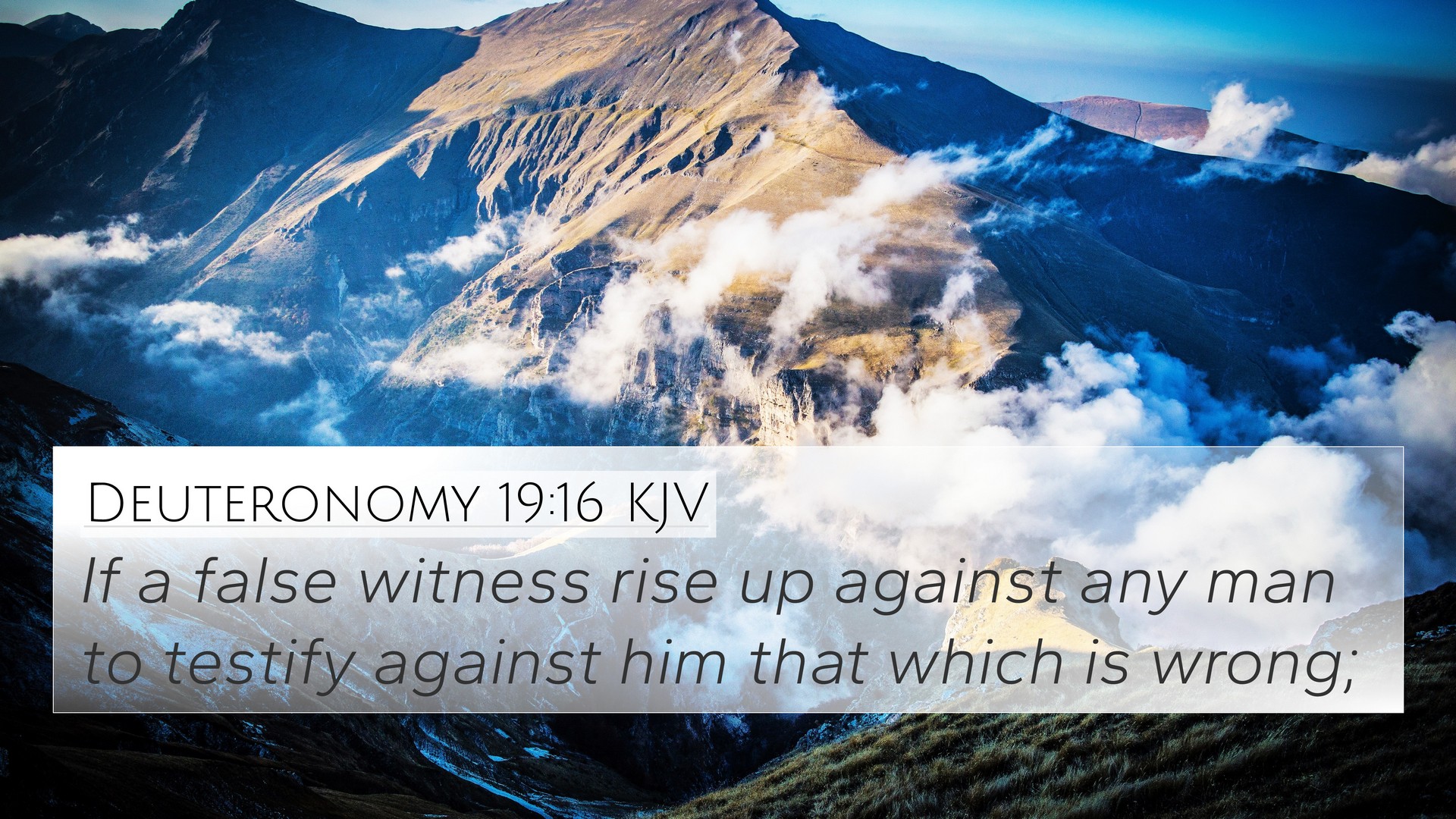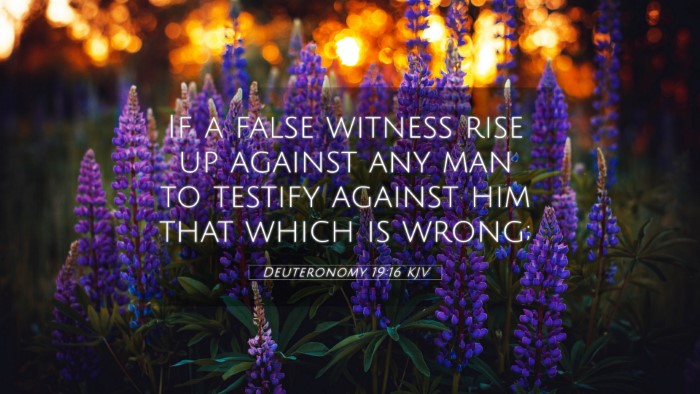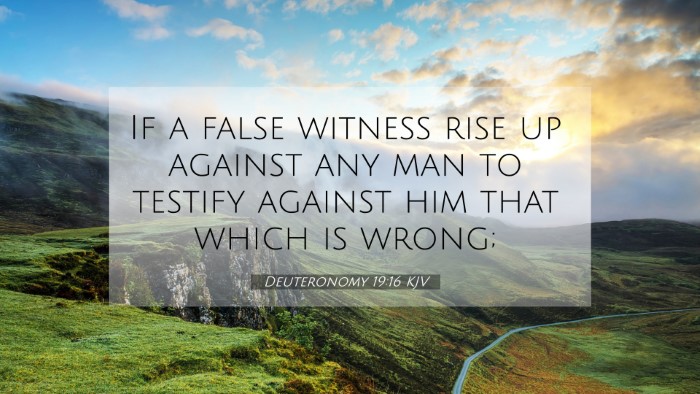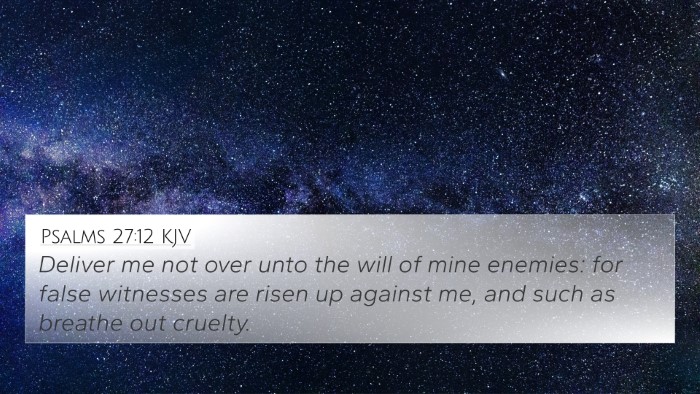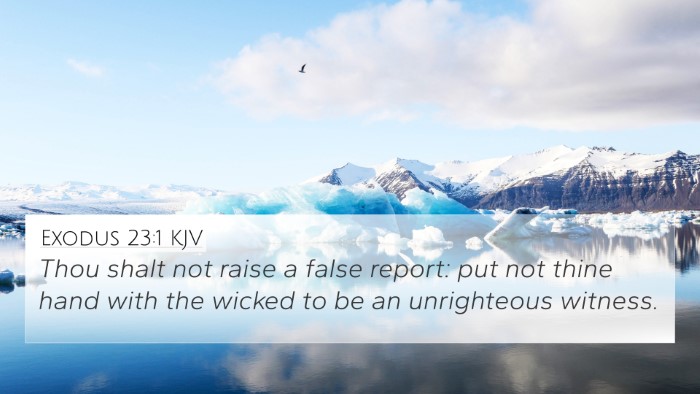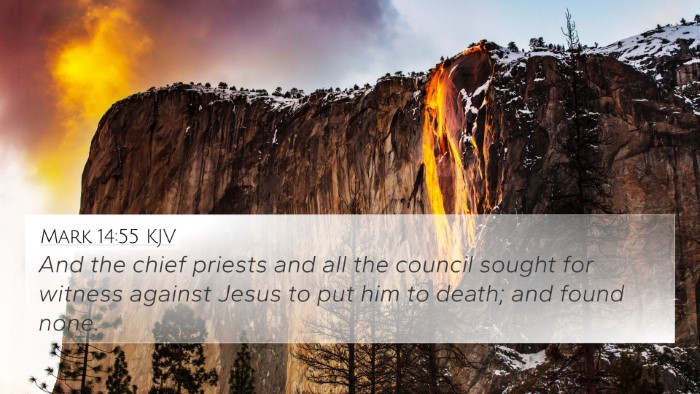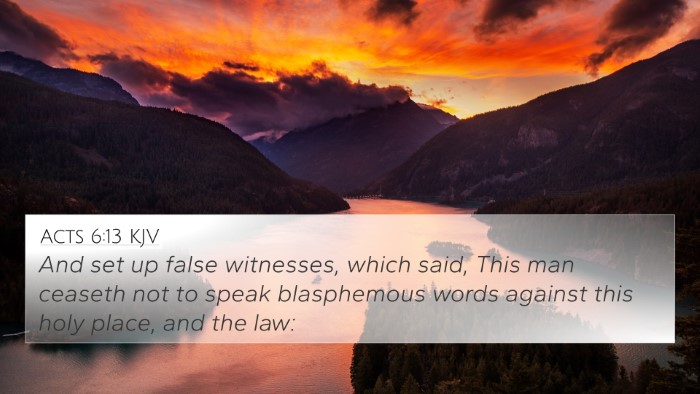Understanding Deuteronomy 19:16
Deuteronomy 19:16 states: "If a false witness rise up against any man to testify against him that which is wrong." This verse addresses the serious issue of false testimony within the context of legal proceedings in Israel.
Summary and Meaning
This verse serves as a warning against the sin of bearing false witness, a violation of the ninth commandment, which underscores the importance of truth in community life. If one were to give false testimony, it would harm not only the individual targeted but also the integrity of the judicial system. The implications of this verse extend to all believers, emphasizing the necessity of honesty and integrity.
Commentary Insights
-
Matthew Henry:
Henry emphasizes that false witness is not merely a legal issue but a moral transgression. He calls for the church and society to take care that their legal proceedings are conducted with fairness and truth.
-
Albert Barnes:
Barnes stresses that the admonition against bearing false witness is crucial for maintaining justice. He highlights the societal repercussions of such deceit and suggests that this call to truth is foundational for societal health.
-
Adam Clarke:
Clarke discusses the wider implications of false testimony and the responsibilities of witnesses. He points out that testimony must be intentional and truthful, bringing attention to the spiritual significance of honesty in one's life.
Cross-References and Thematic Connections
Deuteronomy 19:16 is well-linked with several other scripture passages that reinforce its message about truth and justice. Below are some key cross-references:
- Exodus 20:16: "You shall not bear false witness against your neighbor." – Directly connects to the commandment against false testimony.
- Proverbs 6:19: "A false witness who breathes out lies." – Highlights the moral abhorrence of false witness.
- Proverbs 12:17: "Whoever speaks the truth gives honest evidence." – Emphasizes the need for truthful testimony.
- Matthew 15:19: "For out of the heart come evil thoughts, murder, adultery, sexual immorality, theft, false witness, slander." – Jesus links lying with moral failings.
- John 8:44: "The devil is a liar and the father of lies." – Establishes the dangerous origins of falsehood.
- Revelation 21:8: "But as for the cowardly, the faithless, the detestable, as for murderers, the sexually immoral, sorcerers, idolaters, and all liars..." – Addresses the ultimate fate of false witnesses.
- 1 Peter 2:1: "So put away all malice and all deceit and hypocrisy and envy and all slander." – Encourages honesty among believers.
Conclusion: The Value of Truth
From the insights of these commentaries and the related scripture, it is clear that Deuteronomy 19:16 has significant implications for both ancient Israelite society and modern believers. The act of framing others through lying is portrayed as a grave sin, one that disrupts not only individual lives but the community's overall harmony. Upholding truth is a spiritual imperative that resonates deeply throughout Scripture.
Exploring Further
The use of Bible reference resources and tools for Bible cross-referencing can deepen understanding of themes like truth and justice illustrated in Deuteronomy 19:16. Employing a Bible concordance may aid in identifying further connections between Old and New Testament teachings.
